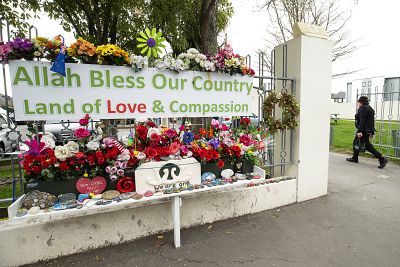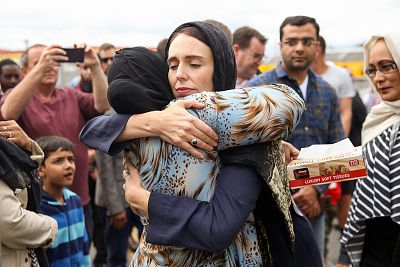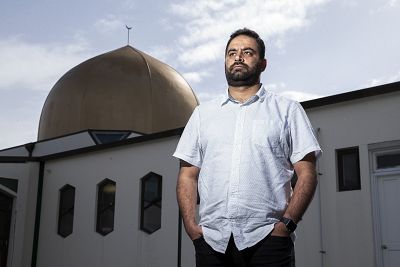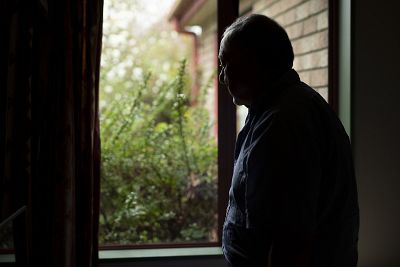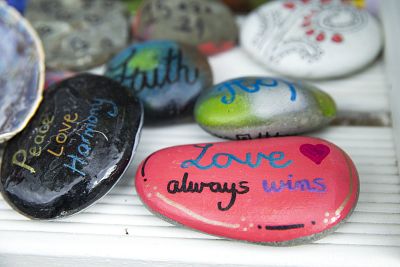"We weren't as tolerant a society as we cared to think," a lecturer at Victoria University of Wellington said.
CHRISTCHURCH, New Zealand — Huzef Vohra is haunted by flashbacks.
The roar of a motorcycle, a loud bang, a whistle-like snore — they catapult the civil engineer back to March 15, to the bottom of a pile of bodies in the corner of Al Noor Mosque. In the disoriented rush that followed a gunman opening fire there, Vohra, 21, charged toward an exit but was quickly caught in the stampede to escape.
"People toppled on top of me," he said. "I was trapped."
As Vohra lay there for what seemed like forever, he felt a series of thumps — each one a gunshot into the mass of bodies above him.
Six months later, Vohra and many others in this county of nearly 5 million are still grappling with a pair of attacks on two Christchurch mosques, Al Noor and the Linwood Islamic Center. Authorities have described the massacre as an act of terror carried out by a suspected white supremacist, who will face trial next year. With a death toll of 51, March 15 marks the worst atrocity in New Zealand's modern history.
As relatives mourn the dead and survivors adjust to life after the attack, New Zealand's leaders have responded with a slate of sweeping policy changes. A mandatory gun buyback has netted more than 19,000 semi-automatic weapons, while Prime Minister Jacinda Ardern's effort to eliminate violent extremism online has been embraced by a handful of big tech companies, as well as more than a dozen countriesincluding the United Kingdom, India and Australia. On Friday, a bill was introduced that would track all the guns in the country through a new register.
These moves have been met with widespread but not universal support. A push for tougher hate speech laws reportedly prompted its own hate-fueled backlash against an Iranian-born member of Parliament, Golriz Ghahraman.
There's been introspection, too. Commentators and academics questioned New Zealand's peaceful, progressive reputation, pointing to its colonial past and the persistence of far-right extremism. A television journalistapologized to viewers for never covering white supremacy.
"Maybe these events held a mirror up to New Zealand, and we didn't much like the reflection," said Peter Thompson, a senior lecturer in media studies at Victoria University of Wellington. "We weren't as tolerant a society as we cared to think."
Still, there were large and small acts of solidarity. Days after the shooting, the Muslim call to prayer was broadcast nationally. Ardern has worn a hijab to public events, most recently to the national conference of the Islamic Women's Council last month.
At Al Noor, a small suburban mosque just outside central Christchurch, congregants said that such acts offered a measure of assurance.
Usman Afzali, 34, a graduate student at the University of Canterbury, recalled consoling a friend whose father and brother were among the more than 40 worshippers killed at Al Noor. It was March 16, and hundreds of Muslims had gathered at a local college seeking information about their missing relatives, he said. Neither Afzali nor his friend knew that Ardern would be there, too, wearing a headscarf and comforting grieving families.
"We thought, 'This is different now, because it is not only on us,'" he said. "It is on all of New Zealand."
For Afzali, this impression has lasted. A couple of friends remain too scared to attend mosque, but he said he's also seen the reverse.
"There are so many people who didn't use to go mosque who now go," he said. "They became regulars."
To Hisham El Zeiny, a former imam at Al Noor, the attack permanently transformed a place he's prayed in for decades.
"It's been broken by a massive killing inside," El Zeiny, 66, said. "You're not scared, but aware that something could happen. It's in the back of your mind."
El Zeiny survived the shooting by escaping through a broken window. Plagued by "what ifs," he said he didn't sleep for days. "Was what I did right or wrong?" he recalled thinking. "Should I have tried to fight" the gunman?
But along with this anxiety came a matter-of-fact Islamic belief in death — "When your time comes, it will come," he said — and an outpouring of support.
A retired surgeon who now teaches in his spare time, El Zeiny recalled students handing him boxes of food and money. When he went to the bank, employees who he didn't know hugged him.
"It shows you how much goodness they have inside," he said. "It gives you hope that someday this ideology will be defeated."
For Vohra, flashbacks are just one of the struggles he's contended with over the past six months.
Two of his roommates — men whom he'd come to consider brothers since he moved to New Zealand from Gujarat, India, in 2016 to go to college — were killed in the massacre.
Mojammel Hoq, 30, had been preparing to get married in his native Bangladesh, Vohra said. Areeb Ahmed, 26, was about to return to Pakistan.
"It was as if I lost my family," Vohra said.
Once the funerals and repatriations were over, Vohra — then a newlywed — began what he described as the frustratingly twisty process of bringing his wife to New Zealand.
Vohra had married Uzma Vahora, 19, in an Islamic ceremony less than two months before in their native Gujarat. They hadn't yet been legally married and didn't have all the documentation to support a long-term visa for Vahora, so she stayed behind. But after March 15, Vohra badly needed her support.
"I didn't want to be left alone," Vohra said. "I wanted her to be with me."
So they applied for the kind of short-term visitor visa that Immigration New Zealand had encouraged victims to seek. But their application was initially denied, and it wasn't until Vohra's employer hired a lawyer that it was finally approved nearly two months after the attack. In a statement to NBC News, Immigration New Zealand said the agency regretted that Vahora's 's travel was "delayed at such a stressful time."
Vahora said she was relieved when she was finally reunited with her husband in June.
"He no longer had to be alone," she said. "We were together, and that was all that mattered."












